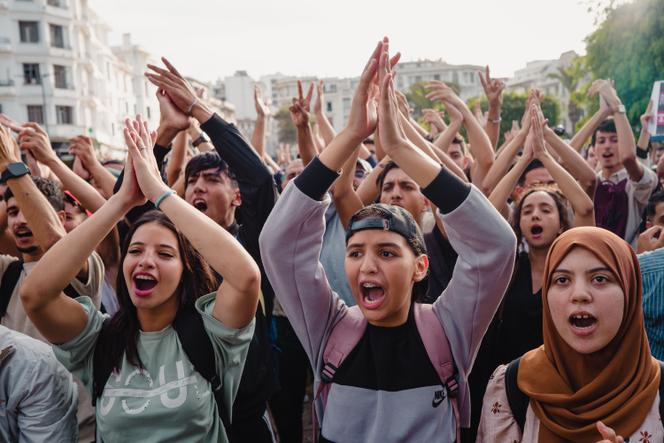Social unrest has been brewing in Morocco. Since September 27, the country has seen daily gatherings of young protesters – even, at times, including minors – who demand better education and health services. On the night of Wednesday, October 1, violent clashes around protests near Agadir, a city in the south of the country, resulted in the deaths of three demonstrators.
Faced with a wave of protest unlike any the country has seen since the 2016-2017 Rif uprising in northern Morocco, the government seems to have been caught off guard. Prime Minister Aziz Akhannouch said, on Thursday, that he was ready to “engage in dialogue” to “respond to young people’s social demands.” However, it seems unlikely that the young protesters will settle for empty promises.
The movement was sparked by widespread outrage after eight women died at a hospital in Agadir in mid-September, following cesarean deliveries – a tragic illustration of the country’s neglected healthcare system. About 10 days later, the protest movement began to organize on the social media platform Discord, under the banner of the “Gen Z 212” collective.
This group describes itself as a local branch (212 is Morocco’s country code) of a movement of Generation Z, those born between 1997 and 2012, which has already shaken regimes in Sri Lanka, Bangladesh and Nepal, and, more recently, risen up in Madagascar. Digital connectedness, a desire for dignity and a rejection of old-style politics: Moroccan youth have joined a transnational wave of protests.
Unlike their peers elsewhere, however, young people in Morocco have been careful not to cross a red line: the sanctity of the royal institution. While many have called for the resignation of Prime Minister Akhannouch, a billionaire businessman who is seen as a symbol of an ascendant oligarchy, no one has called for an end to the country’s centuries-old monarchy, to which the population remains attached despite the acute social grievances.
The blow is harsh
The current unrest nevertheless serves as a stark warning that the monarchy must take seriously, as it spells the failure of public policies that were repeatedly touted in official speeches, particularly the much-publicized National Human Development Initiative (INDH), which dates back to 2005. These well-intentioned projects have not withstood the pressure of the prevailing economic model – crony and rentier capitalism – which has generated social fractures and regional imbalances that benefit a tiny, super-privileged minority.

The already tense social climate has only worsened as prestigious development projects for the upcoming Africa Cup of Nations, set to begin in late December, and the 2030 World Cup, which Morocco is set to co-host with Spain and Portugal, have siphoned off funding from the health and education systems. The regime had hoped to defuse popular resentment through patriotic fervor for sport, yet that was an error: “Schools and hospitals, rather than stadiums!” has been a rallying cry at the youth protests.
Gen Z 212 has cast a harsh light on the flip side of Morocco’s glowing image as an “emerging” country. The blow is harsh for the image that the kingdom has aimed to project abroad. Faced with the reality on the ground, it will require more than clever stopgap measures to ease tensions. It will take the courage to confront a dual monopoly – both political and economic – that has openly displayed its failings.